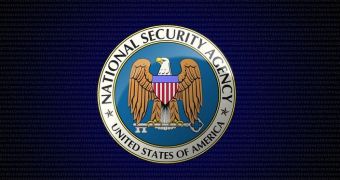The US House of Representatives has dealt a heavy blow to NSA’s surveillance tactics by disarming two of its important tools.
The House has voted overwhelmingly (293 to 123) in favor of an amendment that would cut off funding for programs that allow the engineering of security vulnerabilities in tech products created within the United States.
These are known as backdoors and often used by the NSA to gain control over someone’s computer, for instance. It’s been reported based on Snowden’s files that the intelligence agency commonly intercepts shipments heading outside of the United States, bugs the devices or replaces various components with its own and sends them on their way.
This has happened to computers, hard drives, routers and other devices from companies such as Cisco, Seagate, Maxtor, Samsung, Huawei, Western Digital and Dell, which are all distributed everywhere in the world.
The important thing about this type of surveillance is the fact that it has no target. The NSA doesn’t seem to care where it lands, since, except from knowing the country and city where the shipment is heading, it has no idea who will actually make the purchase.
Alas, this will no longer be allowed based on the new amendment. Furthermore, another thing that will be prohibited by the very same bill is the intelligence agency’s access to American’s Internet communications under Section 702 of the Foreign Intelligence Surveillance Act without a warrant.
This is yet another important issue that has been on everyone’s lips for a long while. Imposing the need of a warrant highly limits the amount of spying that an agency like the NSA can do on people within the United States. While the rest of the world is still completely unprotected in the face of an entity the size of the National Security Agency, it’s nice to see that at the very least some people are offered some protection.
What this new amendment does is completely restrict bulk data collection. In order for the agency to be allowed to look into someone’s communications, it needs to get a warrant, for which it needs solid evidence.
Activists calling for more privacy and less surveillance have applauded the decision taken by the House of Representative. Electronic Frontier Foundation’s Mark Rumold, for instance, has issued a statement saying that the vote was an important first step in reining in the NSA and its invasive surveillance practices.
The decision taken by the US lawmakers is also important for another reason – it is one of the first real efforts to reform the NSA in over a year. Ever since the scandal began and the White House felt the backlash caused by the media reports, it has promised time and time again to reform the NSA’s mass surveillance practices.
The only changes that have happened in the past year are superficial. President Barack Obama announced several measures that barely scratched the surface of the problem.
For instance, he said that the phone call metadata would still be collected, but that the NSA would no longer hold it. He also said that the agency needed the FISA court’s approval before gaining access to any of these files, which isn’t much of an issue, considering that the members of the court haven’t said “no” to the agency in years.

 14 DAY TRIAL //
14 DAY TRIAL //